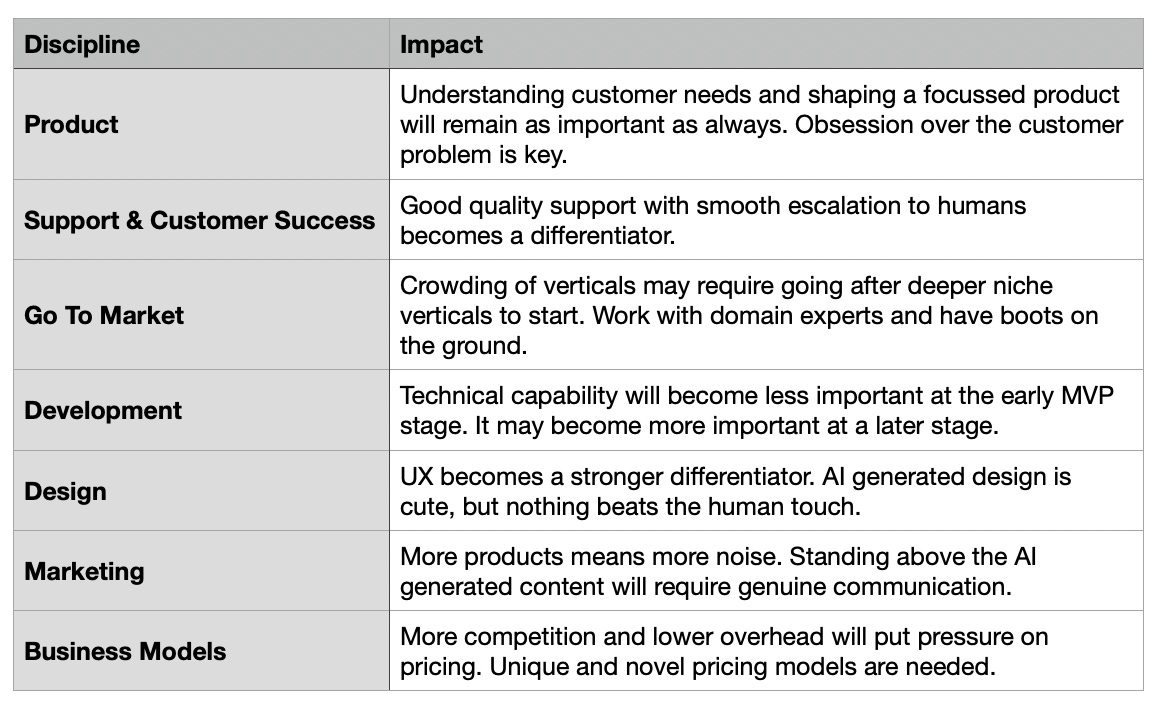Product Market Fit in the Age of AI
Bringing products to market is hard - will AI make it easier?
I’m a builder and I love building software products. Like many software engineers I started out my career building anything and everything. It takes a couple of years to start asking the question: Does it make sense to build this feature? But it takes another decade to start asking the question: Does it make sense to build this product?
I’ve spent most of my career building software with questionable Product Market Fit (PMF). Through lots of hard lessons, I’ve become pretty good at recognizing bad PMF. Creating a unique product that fits customer needs is hard. Very hard. It requires time and dedication. And you cannot spend your way towards achieving it.
Whenever I see an entrepreneur that has achieved PMF, I stop in admiration. And lo and behold my very own sister - Gina - is one of them. Together with Vincent she created a company with strong PMF. All the signs were there: customer first, organic growth, low churn and for the first year: no tech.
Technology as a Lever
When you have strong PMF, technology becomes a lever for scale. Thankfully I was able to join and build together with Gina and Vincent. Today, Road.io has become a scale up processing €130M in EV transactions per year. And thanks to my co-founders I was able to get a masterclass in many aspects of scaling a business.
The genesis of my company Rekall.ai, which I co-founded with Kirk, comes from a struggle with PMF. Rekall started as an AI vision platform in 2017. We had a cool product, but we didn’t want to raise VC money and do the Silicon Valley rat race. Along the way, Kirk and I discovered that we love working with entrepreneurs in getting products to market. Sometimes this means using technology as a lever for scale, but often times it means coaching founders on what NOT to do.
The AI powered Lean Startup
Large Language Models (LLMs) are no doubt changing the economics of developing software products. I would say the biggest impact is on greenfield software development - i.e. the Minimum Viable Product (MVP) stage of creating a product. What used to take months can now be accomplished in weeks.
Side note: While LLMs have a huge cost impact on zero-to-one development, the efficiencies in later stages are notably less. Also, the need for evermore smart features increases the need for more expensive senior talent.
If the cost of creating new products is very low, could this result in a Cambrian explosion of new products? How does this affect getting our product to market? Let’s look at each discipline:
The Deep Startup
AI is disrupting many areas in our lives. Like many technologies, AI is creating an abundance of information and productivity. But in return it is creating a vacuum of new scarcities: human authenticity, original thought, integrity, trust and intimacy.
The same is true in building a business. The tried and true practice of listening to your customer and conducting yourself with integrity remains foundational. When you add human ingenuity, creativity and perseverance - nothing can stop you.





